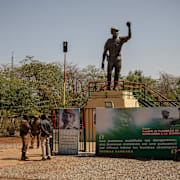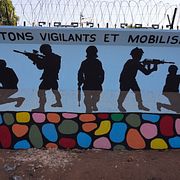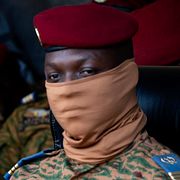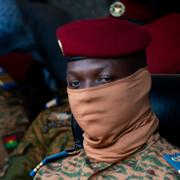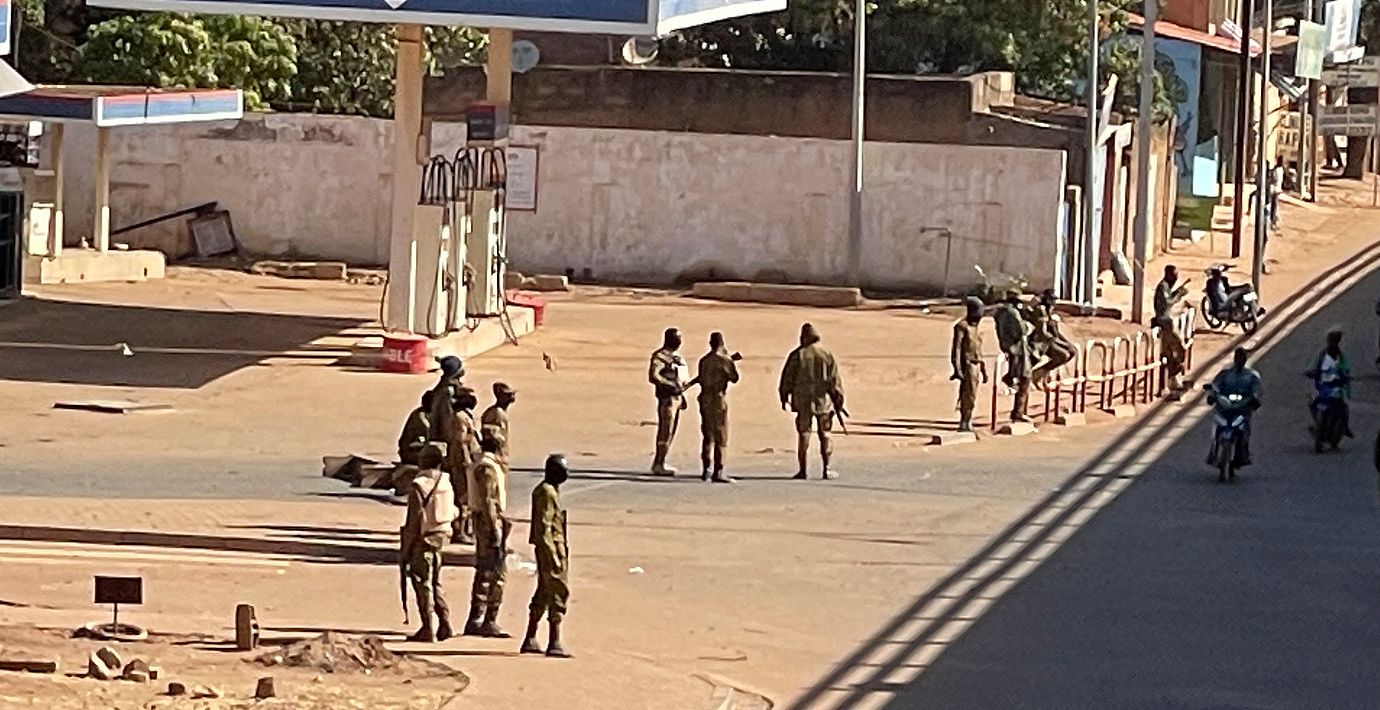
Skottlossning i Burkina Faso – regeringen förnekar kupp
Skottlossning har under natten och söndagsmorgonen utbrutit på flera militära områden omkring Burkina Fasos huvudstad Ouagadougou, skriver AP. Uppgifterna väcker oro för en militärkupp efter flera veckors växande missnöje kring regeringens hantering av islamistiska gruppers påverkan.
Regeringen medger att det förekommit skottlossning, men förnekar uppgifterna om ett kuppförsök. President Roch Marc Christian Kaboré har inte gripits, enligt försvarsminister Aime Barthelemy Simpore.
Statstelevisionen RTB beskriver händelserna som ”uttryck för soldaters missnöje” och rapporterar att inga statliga institutioner har attackerats.
bakgrund
Burkina Faso
Wikipedia (en)
Burkina Faso (UK: , US: (listen); French: [buʁkina faso]) is a landlocked country in West Africa that covers an area of around 274,200 square kilometres (105,900 sq mi) and is bordered by Mali to the northwest, Niger to the northeast, Benin to the southeast, Togo and Ghana to the south, and the Ivory Coast to the southwest. The July 2019 population estimate by the United Nations was 20,321,378. Previously called Republic of Upper Volta (1958–1984), it was renamed "Burkina Faso" on 4 August 1984 by President Thomas Sankara. Its citizens are known as Burkinabé or Burkinabè ( bur-KEE-nə-bay), and its capital and largest city is Ouagadougou.
The largest ethnic group in present-day Burkina Faso is that of the Mossi people, who settled the area in the 11th and 13th centuries. They established powerful kingdoms such as the Ouagadougou, Tenkodogo, and Yatenga. In 1896, it was colonized by the French Empire as part of French West Africa and on 11 December 1958, Upper Volta became self-governing colony within the French Community. On 5 August 1960 it gained full independence with Maurice Yaméogo as President. In its early years, the country was subjected to instability, droughts, famines corruption and various coups that took place in 1966, 1980, 1982, 1983, 1987, an attempt in 1989 and 2015. Thomas Sankara ruled the country from 1982 until he was killed in the 1987 coup led by Blaise Compaoré who became president and ruled the country until his removal on 31 October 2014. Under Sankara's leadership, he renamed the country Burkina Faso and launched an ambitious socioeconomic programme which included a nationwide literacy campaign, land redistribution to peasants, railway and road construction and the outlawing of female genital mutilation, forced marriages and polygamy.Burkina Faso is a least developed country with a GDP of $16.226 billion. 63% of its population practices Islam and 22% practice Christianity. Due to French colonialism, the country's official language of government and business is French. There are 59 native languages spoken in Burkina, with the most common language, Mooré, spoken by roughly 50% of Burkinabé. The country is governed as a semi-presidential republic with executive, legislative and judicial powers. Burkina Faso is a member of the United Nations, ECOWAS, the African Union, La Francophonie and the Organisation of Islamic Cooperation.
Ouagadougou
Omni är politiskt obundna och oberoende. Vi strävar efter att ge fler perspektiv på nyheterna. Har du frågor eller synpunkter kring vår rapportering? Kontakta redaktionen
